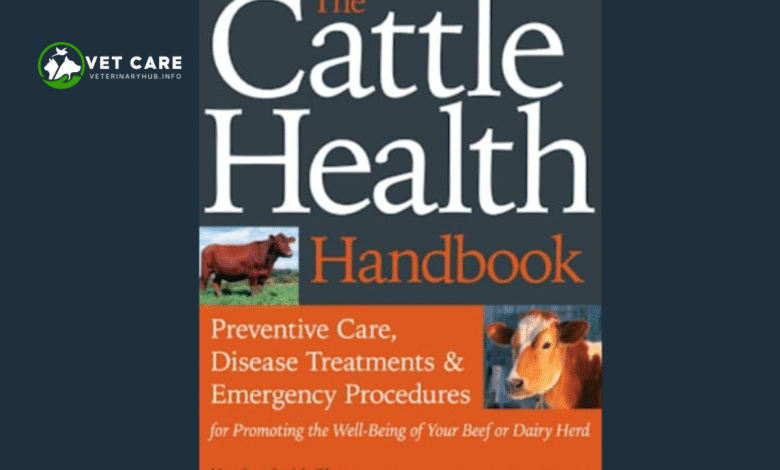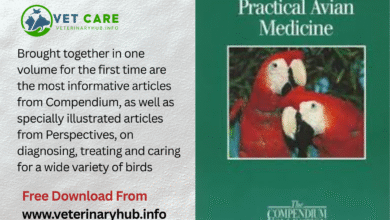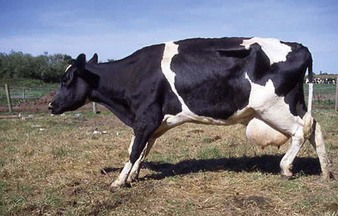The Cattle Health Handbook – Free PDF
A Practical Guide to Natural Cattle Care, Disease Prevention, and Holistic Herd Health

A comprehensive guide focused on natural and preventive healthcare for cattle. This handbook covers common diseases, symptoms, treatments, and management practices to maintain herd health. Ideal for farmers, veterinarians, and livestock caretakers seeking a practical, holistic approach. Free PDF Download here 👇
The Cattle Health Handbook is a vital resource for anyone involved in cattle care, from small-scale farmers to large ranch owners and veterinary professionals. Available in a convenient free PDF format, this handbook offers a comprehensive, practical approach to cattle health management, focusing on preventive care, early diagnosis, and natural treatments. Whether you’re raising beef or dairy cattle, this guide is designed to help you maintain a healthy, productive herd.
Overview of the Handbook
Author Background
Written by Heather Smith Thomas, a seasoned rancher and respected livestock author, The Cattle Health Handbook draws from decades of firsthand experience. Thomas brings a unique combination of veterinary insight and practical farm knowledge, making the book accessible and actionable for everyday use.
Purpose of the Book
The handbook was created to serve as a go-to reference for cattle owners who prefer to be proactive rather than reactive when it comes to livestock health. It offers in-depth information that empowers readers to identify and respond to health issues early and effectively, minimizing costs and improving animal welfare.
Key Features of the Handbook
Preventive Care and Herd Management
One of the book’s core strengths is its emphasis on preventive care. It discusses:
- Proper nutrition and mineral balance
- Vaccination protocols
- Parasite control strategies
- Stress management during handling and transport
- Importance of clean water and sanitation
These sections guide readers in creating an environment that reduces the risk of disease and promotes long-term health.
Disease Identification and Treatment
The handbook features a detailed guide to common cattle diseases, including:
- Respiratory infections (e.g., pneumonia)
- Digestive disorders (e.g., bloat, scours)
- Lameness and hoof problems
- Reproductive issues (e.g., retained placenta, metritis)
- Skin conditions (e.g., ringworm, warts)
Each condition is thoroughly explained with signs and symptoms, causes, prevention tips, and treatment options, including both conventional and natural remedies.
Calf Care and Neonatal Health
Special attention is given to calf health, from birth through weaning. Topics include:
- Assisting difficult births
- Colostrum intake and passive immunity
- Navel care
- Managing scours and dehydration
- Proper housing and nutrition for young calves
This section is especially useful for breeders and farmers during calving season when newborn health is most vulnerable.
Practical Applications
Easy-to-Use Format
The layout of the handbook is designed for quick reference in the field. With clear headings, bulleted lists, and real-world examples, it’s easy to find and apply information—even in urgent situations.
Natural and Holistic Solutions
Many cattle owners today are looking for alternative or complementary medicine, and this handbook delivers with:
- Herbal remedies
- Homeopathic treatments
- Supportive care techniques
- Nutritional therapies
These approaches offer a gentler, more sustainable way to care for livestock and reduce dependency on pharmaceuticals.
Who Should Use This Handbook?
Farmers and Ranchers
Whether you run a small homestead or a large commercial operation, this book will help you understand how to keep your cattle healthy and productive. It’s an invaluable tool for improving your herd’s well-being and minimizing veterinary costs.
Veterinary Technicians and Students
Veterinary professionals and students will find the handbook a useful supplement to clinical textbooks, offering practical, hands-on advice rooted in real-world cattle care.
Homesteaders and Hobby Farmers
Even if you only keep a few head of cattle, this book helps you provide high-quality care and feel more confident in managing health concerns independently.
Why Choose the Free PDF Version?
The free PDF version of The Cattle Health Handbook makes this important resource accessible to everyone, regardless of budget or location. Benefits include:
- Instant download and offline use
- Easy searching and navigation
- Ability to print specific sections for barn use
- Eco-friendly and cost-effective
Final Thoughts
The Cattle Health Handbook – Free PDF is more than just a manual; it’s a comprehensive health guide for raising strong, thriving cattle. Its mix of scientific accuracy, practical advice, and natural care options makes it a must-have for anyone involved in livestock care.
With this handbook at your side, you’ll be better equipped to prevent illness, respond quickly to health concerns, and ensure the overall success of your cattle operation—no matter the size.
Need Veterinary Help?
Have questions about animal health, management, diseases, or treatment?
Our professional veterinary team is here to support you.
Consult Online: Contact Us
Email: professionaldvm129@gmail.com
Website: www.veterinaryhub.info







m60g9j
82pbhz